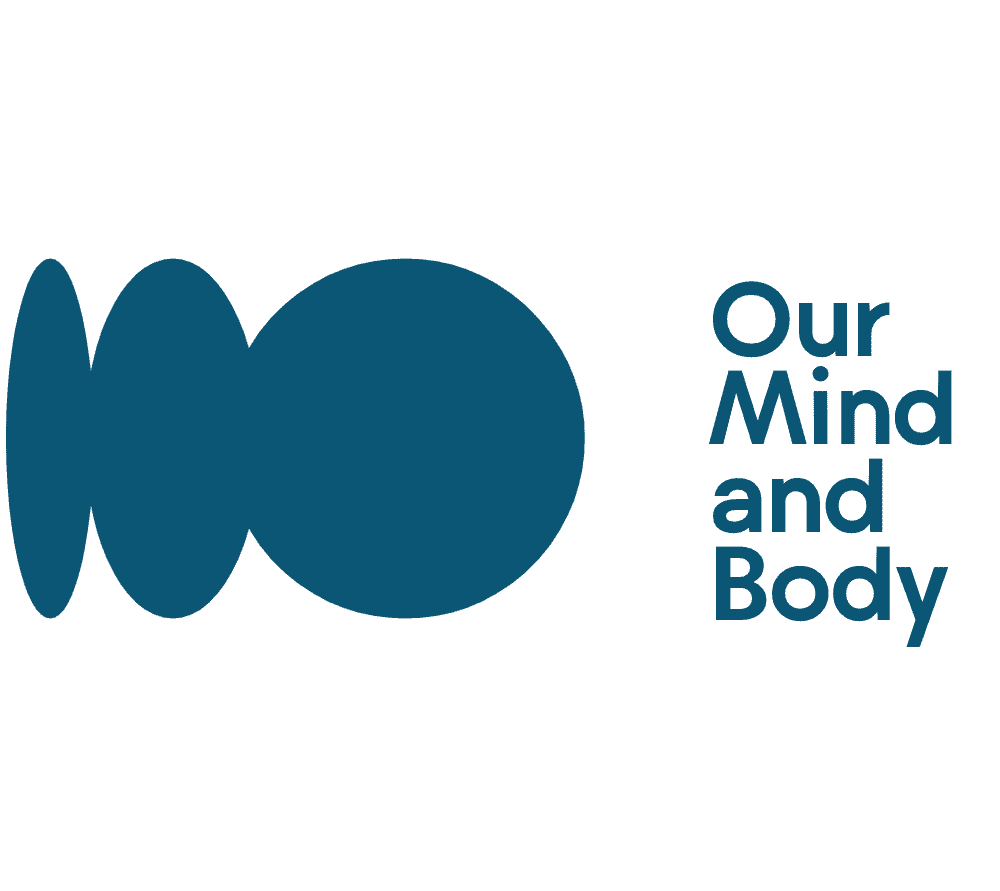Personal Growth
Unlocking Your Potential: The Courageous Path to Self-Awareness and Personal Growth

A survey conducted by Psychology Today reveals that almost 80% of individuals struggle with self-awareness. Recognizing our strengths and weaknesses is crucial for personal growth and progress. Although it may be challenging, taking the brave step towards improving self-awareness can provide valuable insights into ourselves.
The first thing we learn when taking this courageous step is how important self-reflection truly is. Reflecting on our thoughts and feelings allows us to gain insight into why we behave in certain ways. This practice helps us develop greater awareness of our own emotions and behaviors, which ultimately enables us to better regulate them. We also become aware of the areas where we need improvement, as well as what patterns or habits may be holding us back from achieving our goals. It’s through these moments of honest self-criticism that we can identify specific steps needed to make meaningful changes in our lives.
Finally, courageously stepping out of comfort zones heightens our appreciation for life’s opportunities and opens up new possibilities for progress and success. By exploring previously unknown aspects of ourselves, we are able to form realistic expectations about who we are capable of being – giving us the confidence necessary for sustained self-improvement over time. As we embrace this newfound sense of clarity, assertiveness naturally follows suit… …allowing us to make more informed decisions that align with our values and goals.
Assertiveness
When you take a courageous step and make the decision to become more self-aware, it can be an eye-opening experience. You may discover things about yourself that you never knew before. Here are 10 of the most common discoveries when exploring your assertiveness:
- You learn how to set boundaries – Being assertive means knowing what’s acceptable and unacceptable in life, and having the courage to stick up for those boundaries even when others disagree with them. This allows us to protect ourselves from being taken advantage of by others or feeling obligated to do something we don’t want to do.
- You find out how important communication is – In order to effectively express our needs, wants, opinions, and feelings, we must learn how to communicate in an assertive manner instead of aggressive or passive-aggressive ways. Assertive communication gives us back control over our lives and relationships.
- You realize that speaking up isn’t so bad – It can be scary at first but speaking up often leads to improved confidence and greater trust in one’s own voice and opinion. When we speak up for ourselves without attacking another person, this helps build respect between both parties involved in any given situation.
- You understand that standing your ground doesn’t always mean winning – Standing firm on your beliefs does not guarantee victory every time; sometimes compromise is essential if we want to maintain healthy relationships with others while staying true to ourselves as well.
- You figure out your triggers – We all have certain behaviors that trigger negative emotions in us such as anger or hurt feelings; learning which ones these are ahead of time enables us better prepare emotionally for future interactions with people who might exhibit similar traits/behaviors towards us again down the road.
6.You notice instances where you need help developing assertiveness skills– There will likely come times when you feel overwhelmed by situations requiring assertiveness training; recognizing this need early on will enable you get professional guidance if necessary so as not succumb too much stress due lack knowledge/experience needed during such circumstances (especially ones involving conflict).
7 .You appreciate the importance of saying no – Learning how say ‘no’ respectfully yet firmly opens doors for new opportunities since now there is space created free from obligations previously assumed unknowingly through agreement made unintentionally due fear rejection or guilt associated with doing otherwise than expected by someone else..
8 .You know when it’s ok to express emotion – Appropriate emotional expression is key part effective communication especially within workplace context; understanding appropriate levels sharing emotion also helps ensure opposing views remain heard without leading into heated debates based solely upon personal differences rather than topic under discussion itself..
9 .You recognize signs of manipulation– Knowing warning signals manipulators tend use makes easier resist enticement agree behavior they hope achieve either directly indirectly via subtle tactics threatened consequences refusal comply request(s) presented..
10 .You acknowledge strengths weaknesses alike– Accepting flaws same level admiration held successes presents balance rarely seen among individuals prone competing themselves against standards imposed society culture norms operate within daily life..
The journey toward becoming more self-aware can bring many unexpected insights along the way; discovering new facts about oneself like those listed above adds depth perception seeing world around us from different angles beyond traditional expectations placed upon everyone regardless age gender race ethnicity etc… By embracing these newfound realizations regarding ourselves, we open door further growth potential development building self-efficacy ever closer reach!
Self-Efficacy
When we take a courageous step and venture beyond our comfort zone, it can be an eye-opening experience. The process of self-reflection that ensues allows us to gain insight into who we are, what drives us, and how far we’re willing to go for success. One important element in this process is the development of self-efficacy – or your beliefs about yourself and your capabilities.
Developing self-efficacy isn’t easy; it requires overcoming mental barriers and pushing through fear. But when done effectively, you become more confident about taking risks and making bold decisions without hesitation. It’s also essential for setting goals and achieving them with consistency. To build up your own sense of self-efficacy, consider implementing various strategies such as positive affirmations, visualization exercises, goal setting, and feedback from trusted people around you. Additionally make sure you keep track of small wins along the way so that they can further fuel your motivation towards bigger successes down the line.
By cultivating self-efficacy within ourselves, we learn valuable lessons about our strengths, weaknesses, values and passions; all crucial elements necessary for leading a life filled with purposeful action. Through this newfound understanding of ourselves comes greater clarity on which paths are worth pursuing – allowing us to move forward with trust in our abilities.
Self-Trust
Taking a courageous step requires us to look deep within, trusting the self. When we do so, it can be a liberating and empowering experience. We begin to identify our true values and beliefs; those that are not influenced by anyone else’s opinions or expectations of us. Through this process, we learn more about ourselves than ever before. Here are the top 10 things you learn when taking such a brave step:
1) Self-trust is essential for lasting success – When we trust in our own abilities, decisions and judgments, we become unstoppable in achieving our goals.
2) Acknowledging your strengths builds self-belief – By recognizing our talents and capabilities, we develop an inner confidence that no one can take away from us.
3) Respect yourself first – You must treat yourself with kindness and respect before expecting others to do the same.
4) Taking risks opens up new possibilities – Life becomes much more interesting when you challenge yourself with different experiences outside of your comfort zone.
5) Let go of fear – Fear holds us back from reaching our full potential. Step out of it by facing challenges head on instead of avoiding them.
6) Patience is key – Take time to reflect on where you’ve been and focus on where you want to go next without feeling rushed or overwhelmed.
7) Believe in yourself – Have faith in who you are regardless of what other people think or say about you. Remind yourself daily why you have worth as an individual and value every bit of progress made along the way.
8) Speak positively to cultivate self-confidence – Practice positive affirmations regularly to build stronger feelings of assurance within yourself over time.
9) Honor your intuition – Listen closely to your gut instincts whenever faced with difficult situations rather than relying solely on logic alone. It will help guide you towards making sound judgement calls moving forward.
10) Celebrate small victories – There’s nothing wrong with patting yourself on the back occasionally for even minor accomplishments achieved throughout life’s journey!
In sum, learning how to trust oneself is an important part of growing into adulthood as it helps provide clarity during times of uncertainty while also giving us strength during moments of vulnerability ahead on the path towards emotional resilience .
Emotional Resilience
When we take a bold step, it’s common to go through emotional ups and downs. We learn that the only way to really grow is by having the courage to face our fears and challenge ourselves. This requires emotional resilience—the capacity to cope with difficult situations without being overwhelmed or giving up hope.
We also discover how important inner strength is for achieving our goals; when things get tough, having faith in ourselves gives us the fortitude needed to keep going. Building this kind of mental toughness takes patience and practice but can open new doors of opportunity.
Learning about emotional intelligence helps too. It teaches us how to better manage our own emotions as well as those around us, which can make life more enjoyable and successful. And self-compassion plays an equally essential role; understanding that mistakes are part of learning allows us to forgive ourselves and move on from failure with greater ease.
By taking courageous steps, we build valuable character traits like perseverance, adaptability, and humility—all necessary components for developing true emotional resilience. Transitioning into risk acceptance then becomes easier since we have already gained so much confidence in facing challenges head-on and managing our feelings along the way.
Risk Acceptance
Have you ever wondered what it takes to take a courageous step? When we decide to bravely act on our dreams and aspirations, there are many lessons that can be learned about ourselves. Risk-acceptance is one of the most important things that we learn when taking such risks.
Risk-tolerance, risk-management, and risk-taking all play an important role in this process. To assess these risks effectively, we need to understand how much risk we are willing to accept and manage responsibly. Knowing your own limitations is essential for making mindful decisions with respect to any risky situation or endeavor.
The ability to recognize potential risks before they arise allows us better prepare for them as well as make more informed choices during difficult times. Such skills come from learning who we are through self-reflection and understanding our strengths, weaknesses, and capabilities. By being aware of our personal boundaries, will allow us to consciously choose which risks would be beneficial or detrimental towards reaching our goals.
Taking those first steps into unknown territory requires trust in oneself and courage despite the fear of failure or success; but by having faith in yourself while confidently assessing each risk offers invaluable experiences along the journey towards achieving whatever lies ahead. As we continue on this path of discovery, let’s remember to remain open minded as each decision is made mindfully so that we may reap the rewards without sacrificing too much in return.
Mindful Decision Making
Taking a courageous step often reveals hidden truths about ourselves. When we make mindful decisions, it can provide insight into our core values and beliefs. It is important to recognize that the decision-making process isn’t always easy; but by taking time for thoughtful choices, we are more likely to make wise ones.
The practice of mindful living involves being aware of both our internal state as well as external influences on us. We can notice how certain situations or people may trigger negative emotions such as fear or anxiety. This awareness allows us to pause before reacting so that we can respond in a way that serves our best interests and those around us.
Mindful decision making also requires having an open mind to other perspectives. By letting go of preconceived notions and opinions, we give ourselves the opportunity to learn something new through listening and understanding different points of view. With this kind of openness comes greater empathy towards others which helps strengthen relationships with them.
Through mindful decision making, we are able to gain clarity about who we are and what matters most in life. Making conscious choices not only leads us closer to fulfilling our goals but also helps create meaningful connections with others along the journey – allowing us to move forward confidently into creative thinking and exploration.
Creative Thinking
When you take a courageous step, it can be both enlightening and liberating. We often think that we know ourselves best, but by taking that one brave move, we discover new aspects of our character and abilities. One such discovery is the capacity for creative thinking. It allows us to solve problems in imaginative ways, generate innovative ideas, find out-of-the-box solutions, and come up with unconventional approaches.
Creative problem solving requires an open mind – one free from any preconceived notions or biases. In order to access this level of flexibility in thought, we must let go of fear; only then are we able to explore what lies beyond our comfort zone. With practice and intentionality, our minds become accustomed to using creative thinking as a tool for navigating through challenging situations. This newfound ability gives us confidence in knowing that there’s always more than one way to tackle life’s obstacles!
We have the power within us to rise above any situation if we allow ourselves the freedom of creativity. By staying open minded and embracing imaginative ideas, our lives become enriched with possibilities instead of limitations – freeing ourselves from old patterns so that we may grow into something greater than before. Allowing such flexible thinking carries us ever closer toward achieving whatever goals set forth on our journey.
Flexible Thinking
Taking a courageous step gives us the opportunity to learn more about ourselves. It requires us to go beyond our comfort zone, challenge our beliefs and push our boundaries. We can apply this same concept when it comes to flexible thinking. Whether you are trying to solve a problem or planning for the future, having an open mind that is capable of adapting quickly to change is essential for success. Here’s some things we can learn about ourselves when we take a courageous step towards flexible thinking:
- How responsive we are in difficult situations – Flexible thinking helps us recognize opportunities even during challenging times and allows us to adjust our plans accordingly.
- Our ability to stay focused on the goal – Being able to think outside the box enables us to come up with innovative ideas while still staying true to our objectives.
- The power of collaboration – Adaptive thinking encourages teamwork and cooperation which enhances collective knowledge and promotes better decision making.
- How creative we can be – Open-mindedness grants access to new ways of approaching problems and leads to creative solutions that may not have been considered otherwise.
Flexible thinking also gives us the confidence needed in order develop effective strategies for achieving goals as well as gaining insight into our own strengths and weaknesses along the way. This newfound awareness equips us with valuable tools that will be useful in many areas of life such as being able to handle stress better, finding balance between work/life commitments, being decisive when faced with important decisions, etc… Ultimately, these insights help create greater adaptability so that no matter what challenges arise, we’ll know exactly how best tackle them head on! With such deep understanding of ourselves, let’s move onto exploring the importance of having ‘the ability to adapt quickly’ in today’s ever-changing world…
Ability To Adapt Quickly To Change
Taking a courageous step can be daunting and difficult, but it also gives us the opportunity to learn about ourselves in ways we never imagined. I recently took one such courageous step and learned that I have an incredible ability to quickly adapt to change. This was surprising since my initial reaction to new situations is usually hesitation or fear of the unknown. However, after taking a few moments to process things, I found that with the right mindset, I could rapidly adjust and move forward.
Change adaptation has been key for me during this journey because without it, I would not have been able to make progress. As soon as something changed unexpectedly, like when a client gave feedback on my work at the last minute or when plans had to suddenly pivot due to unforeseen circumstances, I used my adaptability skillset to find solutions and keep going. It’s helped me develop creative problem-solving abilities and build resilience in times of uncertainty.
This newfound awareness of my own adaptability has allowed me to think differently about how change affects me both personally and professionally. Now instead of feeling overwhelmed by sudden changes around me, I’m better equipped with the tools needed to navigate them effectively while finding success along the way. Transitioning into the next section—overcoming fear of failure and success—I am now more confident in my ability approach these challenges head-on without letting anxiety get in my way.
Overcoming Fear Of Failure And Success
When we take a courageous step, there are so many things that we can learn about ourselves. We may feel fear of failure and success but it is important to understand that overcoming these fears is possible. Taking the initiative to confront our fears head on will give us a better understanding of who we are and what motivates us.
One of the most beneficial ways to overcome fear of failure or success is by acknowledging why you are feeling fearful in the first place. It could be something from your past experiences that has caused this emotion or maybe even something completely unrelated. Once you identify the root cause behind your feelings, you can begin to work towards addressing them with strategies such as positive affirmations or journaling. Doing this can help shift your perspective and allow you to focus on moving forward instead of staying stuck in an unproductive cycle of self-doubt and anxiety.
Another helpful way to face failure anxiety and success anxiety is by reaching out for support from friends, family, co-workers, or mental health professionals if needed. Having someone close to talk through your worries with can provide reassurance and comfort during difficult times. Additionally, seeking professional guidance from qualified therapists can also help strengthen coping skills when dealing with challenging emotions like fear of failure and success.
Strengthening relationships with others gives us a sense of connection which helps build resilience when facing any kind of adversity. Whether it’s talking through tough topics over coffee or just spending quality time together; having supportive people in our lives makes all the difference!
Strengthening Relationships With Others
When we take a courageous step in overcoming our fear of failure and success, it can be an empowering experience. We learn about ourselves and gain insight into how to make progress on the journey ahead. Taking that first brave step helps us develop key interpersonal skills necessary for building strong relationships with others. Here are the top 10 things you learn about yourself when you take a courageous step:
1) You have more courage than you think – It’s easy to underestimate your own courage until you actually face one of your fears head-on. Once you do this, it can instill a newfound sense of confidence in yourself and help build trust between yourself and those around you.
2) You will be supported by others – When taking a courageous step, most people discover that they have plenty of support from their family and friends who want them to succeed. This realization makes it easier to open up emotionally, which leads to stronger bonds with other people.
3) Your communication skills will improve – As you become comfortable expressing yourself openly and honestly, your communication skills also improve significantly. This allows for deeper conversations where both parties feel heard and understood, leading to better understanding between two people or within a group setting.
4) You must practice self-care – During moments of vulnerability, it is important to remember that self-care should always come first. Practicing self-care means finding ways to relax physically and mentally so that we can remain resilient even during challenging times.
5) Relationships require effort – Building meaningful relationships takes time and effort but is worth the investment as these connections contribute greatly towards our overall wellbeing. To strengthen any relationship requires dedication from both sides; if either person fails to put in the work then the bond will deteriorate over time instead of growing stronger.
6) Compassion builds connection– One way to foster deeper connections with others is through compassion — being empathetic towards their struggles while offering nonjudgmental advice or support helps create mutual respect among all involved parties.
7) Listening strengthens relationships – True listening involves not only hearing what someone has said but actively engaging in the conversation by sharing relevant thoughts or experiences that relate back to what was just discussed. Doing this shows genuine interest in another person’s feelings which creates trust between two individuals or groups alike.
8) Personal boundaries need maintenance – Maintaining personal boundaries is essential for healthy relationships because it sets limits on how far each party is willing/able to go without feeling uncomfortable or taken advantage of by another individual or group . Knowing one’s own needs and expectations before interacting with anyone else prevents misunderstandings down the road..
9.) Social intelligence matters– Developing social intelligence enables us to identify underlying emotions behind certain behaviors which gives us greater insight into why others act in certain ways towards us as well as giving us strategies for responding appropriately depending on different situations presented before us..
10) Self-awareness encourages growth – Becoming aware of our weaknesses allows us the opportunity for growth since knowledge often brings power which eventually leads to success if applied correctly… All these factors combined enhance our ability nurture positive relationships with those closest to us whether it be family members, colleagues at work ,or acquaintances.. With this newly gained perspective regarding strengthening relationships with others comes new insights into developing leadership skills….
Development Of Leadership Skills
The notion that taking a courageous step can lead to remarkable developments in one’s leadership abilities is an idea worth exploring. Taking risks, pushing boundaries and being courageous enough to face the unknown often require strength and determination – two qualities that are essential for developing strong leadership skills. When we take a leap of faith into the unknown, it forces us to look inside and discover more about ourselves. It allows us to identify our strengths and weaknesses, enabling us to develop better strategies when leading others.
In addition, courageously stepping out of our comfort zone facilitates greater self-awareness and allows us to connect with people on a deeper level. This brings forth opportunities for engaging conversations which leads to increased understanding of different perspectives, allowing us to make informed decisions as leaders. Furthermore, by accessing this newfound knowledge within ourselves it creates space for heightened sense of purpose in life; inspiring those around us to do the same.
Heightened Sense Of Purpose
When we take a courageous step and develop our leadership skills, often times it is accompanied by an increased sense of purpose. We begin to understand that the steps we take have a greater meaning and can lead us closer towards our individual goals in life. It’s amazing what happens when you make the conscious decision to become more self-aware and start taking control of your own destiny. The rewards are immense! Here’s a look at some of the top 10 things you learn about yourself when embarking on this journey:
Table: Top 10 Things You Learn About Yourself When Taking a Courageous Step
| 1 | 2 |
|---|---|
| Growth Mindset | You begin to recognize the importance of having an open mind and developing resilience against adversity. |
| Clarity of Purpose | You gain clarity around where you want to go in life versus where others may be telling you should go. |
| Higher Self-Esteem | Your level of confidence starts increasing as your ability to trust yourself grows. |
| Find Your Passion | You discover passions which help ignite your inner fire, leading to new levels of motivation and enthusiasm for life. |
| Follow Through On Goals | You progress from setting small achievable goals that build momentum into larger ones with higher impact outcomes. |
| Creative Problem Solving Skills | Your creative problem solving abilities sharpen due to enhanced critical thinking skills gained through practice and experience. |
| Heightened Sense Of Responsibility & Accountability | The courage instilled allows you to assume ownership over decisions made while being prepared to accept any consequences resulting from them. |
| Increased Capacity For Joy & Gratitude | This newfound perspective encourages appreciation for all people, experiences, successes and failures encountered along the way. |
As mentioned previously, taking a courageous step unlocks so many benefits which collectively culminate in discovering a heightened sense of purpose; one that propels you forward towards achieving success while feeling contentment within oneself each day – no matter how big or small those achievements come out to be. This newfound direction provides like-minded individuals with opportunities for personal growth as well as fostering meaningful connections with others who share similar interests or values – ultimately leading us down paths yet undiscovered but full potential ready for unlocking! Increased capacity for joy is just another component added onto this growing list!
Increased Capacity For Joy
Taking a courageous step can lead to the most unexpected discoveries about yourself. One of the greatest benefits is an increased capacity for joy – making more room in your life for joyful experiences, joyous moments and much-needed respite from stress.
Take the case of Marcy, who decided to take a solo vacation after being cooped up indoors due to the pandemic. She was nervous at first but soon discovered that traveling alone gave her so many opportunities to explore and learn new things about herself. As she connected with locals, tasted delicious food and explored hidden gems, her sense of joy grew exponentially as she realized how vibrant and alive she felt in these moments.
As Marcy’s journey progressed, she noticed something else – her capacity for experiencing joy had grown significantly! She found herself laughing often, savoring every moment and feeling a deep appreciation for all that surrounded her. What started out as a small leap of faith led to this incredible realization – that by taking risks and embracing change, we can expand our ability to experience joy on a much deeper level.
Frequently Asked Questions
How Do I Become More Self-Aware?
Becoming more self-aware is an important part of personal growth and can be a challenging journey. Self-awareness is the state of understanding one’s own values, emotions, goals, and motivations that lead to greater insight into ourselves as individuals. It involves being aware of our strengths and weaknesses, as well as how we interact with others in different contexts. Developing self-awareness skills allows us to gain clarity and better understand who we are on a deeper level.
Self-reflection is key when it comes to cultivating self-awareness. Taking the time for introspection enables us to identify patterns in our behaviors and thought processes, allowing us to make positive changes and progress further down our path towards self-growth. Journaling or talking with a therapist can help provide clarity about what drives certain decisions or reactions within ourselves. Additionally, taking risks outside of our comfort zone helps us learn more about our true capabilities, which leads to greater confidence in ourselves and improved relationships with those around us.
Through intentional practice and commitment over time, we can develop a strong sense of self-understanding that improves every aspect of life. This doesn’t necessarily mean becoming perfect – far from it! Instead it involves embracing all aspects of oneself; both the good parts we want to show off, as well as flaws that may need work but ultimately shape who we are at our core. Being honest with yourself isn’t easy but it’s worth it for increased wellbeing in the long run. With some patience and effort you can become more confident in your abilities while gaining valuable insight into your hopes, dreams, fears and motivations – making way for a brighter future full of possibilities!
How Can I Improve My Assertiveness?
When it comes to achieving success in any field, assertiveness is an important skill. But how can you become more assertive? It’s a question many people ask themselves when they want to make positive changes in their lives. Fortunately, there are plenty of ways to increase your assertiveness and achieve the goals you set for yourself.
The first step to becoming more assertive is understanding what it means. Assertiveness means taking ownership of your thoughts and opinions, having confidence in yourself and speaking up for your rights – but without being aggressive or disrespectful toward others. Once you understand this concept better, you’ll be ready to start implementing some helpful tips and strategies that will help boost your level of assertiveness.
One of the most effective methods for improving your assertiveness skills is through training programs or workshops designed specifically for this purpose. There are also several online classes available if that’s more convenient for you. Additionally, there are numerous books with exercises, activities and even role-playing scenarios which can help enhance your ability to stand up for yourself and express yourself confidently without fear of judgment or criticism from others.
It’s important to remember that becoming more assertive isn’t something that happens overnight; it takes practice, patience and dedication over time before you begin seeing results. However, with consistent effort and by following these simple tips and strategies, you’ll soon discover just how much easier it becomes to speak up for yourself in all kinds of situations – ultimately giving you greater control over reaching your personal goals!
How Can I Increase My Self-Efficacy?
Taking a courageous step towards improving one’s self-efficacy can be daunting. But it is also an essential life skill to master if you want to become more successful, fulfilled and confident in your abilities. Self-efficacy is the belief that we have in ourselves to achieve goals and handle difficult situations. If I want to increase my self-efficacy and take charge of my future, there are several ways I can strengthen this important trait.
The first way I can improve my self-efficacy is by engaging in positive affirmations. These can range from writing down daily mantras or creating pep talks for myself when faced with challenging tasks. Repeating these positive messages will help me boost my confidence so that I am better equipped to tackle whatever comes my way. Additionally, developing realistic expectations for oneself is key as well; setting achievable goals will provide motivation for tackling any task at hand and ensure progress over time.
Another effective way of increasing one’s self-efficacy is by focusing on successes rather than failures. Every mistake along the journey should not define us but instead act as learning opportunities to propel us further forward. Celebrating our wins no matter how small they may seem will create lasting memories that serve as reminders of our capabilities even during moments of uncertainty. Finally, connecting with mentors who have gone through similar experiences and achieved success can offer valuable insight into the challenges ahead and strategies for overcoming them effectively–ultimately strengthening our own self-efficacy even further!
By recognizing what actions need to be taken today in order to reach our desired outcomes tomorrow, we gain a stronger sense of control over our lives while simultaneously boosting our ability to stay resilient despite any obstacles encountered along the way. Developing our own unique set of skills rooted in positivity, resilience and dedication has the power to push us past struggles and onto greater heights with each passing day!
How Can I Build Self-Trust?
When it comes to building self-trust, most of us feel a little lost or overwhelmed. We may find ourselves asking how we can increase our levels of self-confidence and develop that deep inner trust in ourselves. It is important to recognize however, that building self-trust requires much more than just positive affirmations; it involves actively engaging in activities aimed at developing your own sense of trustworthiness.
In order to build self-trust, there are several effective trust-building techniques you can put into practice right away. Firstly, focus on embracing yourself as you are – flaws and all! When we accept our imperfections without judgement, we become better equipped to handle the curveballs life throws our way. Secondly, surround yourself with people who support and value you for who you are; having strong relationships helps give us the courage needed when conquering fears or taking risks. Finally, take time out for yourself each day – whether this means reading a book, journaling thoughts or simply meditating – making sure to nurture both body and mind will do wonders for boosting confidence levels too!
By following these simple steps towards building self-trust, it won’t be long before you start noticing an improvement in your overall sense of wellbeing and resilience. Trusting yourself allows you to really tap into the power within which leads to greater clarity around decision making and achieving goals. So why not make today the perfect opportunity to start investing in your own personal growth? Through small but consistent actionable steps such as those outlined above, pretty soon you’ll be well on your way towards becoming the best version of yourself – inside and out!
How Do I Become More Emotionally Resilient?
When it comes to becoming emotionally resilient, many of us feel overwhelmed and discouraged. But with a little bit of courage, self-belief, mental toughness and emotional strength, we can become more emotionally durable and better equipped to handle life’s ups and downs.
To build this resilience takes time but here are some ways that you can strengthen your emotional stability:
- Grow yourself
- Acknowledge your current skillset and identify areas for personal growth
- Set realistic goals that can be achieved over time
- Practice mindfulness techniques such as meditation or journaling
- Live in the present moment
- Work on being content with what is happening now rather than worrying about what may or may not happen later
- Reflect on how far you have come from where you were before
- Make positive choices that will help improve your wellbeing today
- Connect with people around you
- Surround yourself with individuals who bring out the best version of you
- Reach out to friends when feeling down; they might just be able to offer words of wisdom or advice that could turn things around
- Invest in relationships which help foster mutual understanding and trust
Taking steps towards building emotional resilience isn’t always easy, especially if our past experiences make us hesitant. However by taking small steps every day towards creating an environment supportive of our own development, we set ourselves up for success. Making conscious decisions aligned with our values helps us believe in ourselves again after setbacks; it enables us to focus on rebuilding mental strength until we feel ready to take courageous leaps forward once more.
Conclusion
Taking a courageous step is an important part of life. It’s about taking risks and embracing the unknown, which can be both thrilling and terrifying. When we take that leap into unfamiliar territory, we learn more about ourselves than we ever would have imagined. By being brave enough to venture out on our own path, we become aware of our inner strength, resilience, self-efficacy and trust—all invaluable qualities for finding success in life.
When it comes down to it, courage isn’t something you can find in a textbook or buy from a store; instead, it requires us to dig deep within ourselves and take ownership of who we are as individuals. Taking courageous steps gives us the opportunity to discover things about ourselves that nobody else can see: our capacity for growth and determination to succeed no matter how hard the situation may seem. As Eleanor Roosevelt famously said “You must do the thing you think you cannot do.” In other words, try new things even if they scare you – because those experiences will teach you more about yourself than any book could!
In conclusion, when we take a courageous step forward towards achieving our goals, we gain much more than just progress —we also gain insight into what truly makes us unique and special people. We discover hidden strengths within ourselves that make us capable of succeeding against all odds – so go ahead and take a chance today! After all “Fortune favors the bold”– so don’t let fear hold you back from reaching your full potential!
Meet Nadi, the soulful writer and explorer of inner realms who graces OurMindAndBody.com with her profound insights and heartfelt wisdom. With a profound passion for mindfulness, meditation, and spiritual growth, Nadi weaves words that touch the hearts and minds of readers, leaving a lasting impact on their well-being journey.
Rooted in a background of philosophy and psychology, Nadi’s curiosity about the human mind and the mysteries of the soul led her on a transformative path of self-discovery. Drawn to the transformative power of mindfulness and meditation, she embarked on a quest to understand the intricacies of these practices, not only for her own growth but also to inspire others to embark on their own inner journeys.
Personal Growth
The Spiritual Significance Of Shooting Stars: Meaning And Symbolism

Have you ever gazed up at the night sky and witnessed a meteor streaking through the darkness? It’s a moment that mesmerizes us and fills us with wonder and awe.
Shooting stars, both scientifically and spiritually, hold a profound significance. Scientifically, they provide valuable insights into the history and composition of our universe.
But beyond the realm of science, shooting stars carry a deeper, more spiritual meaning. In this article, we will explore the spiritual significance of shooting stars, delving into their symbolism and the profound impact they can have on our lives.
Key Takeaways
- Seeing a shooting star spiritually is believed to bring good luck and positive energy
- Many cultures associate shooting stars with messages from the spiritual realm or the universe
- Shooting stars are often interpreted as a sign of new beginnings or endings
- Symbolic meanings of shooting stars include new ideas, wishes, dreams, and spiritual journeys
What are shooting stars?
I’ve learned that shooting stars are natural phenomena caused by debris from space entering the Earth’s atmosphere, and they burn up, creating a bright streak of light across the sky.
It’s fascinating to think about the mythological origins and cultural beliefs surrounding shooting stars. In many cultures, they are seen as messages from the spiritual realm or the universe. Some believe that seeing a shooting star spiritually brings good luck and positive energy, while others associate them with new beginnings or endings.
The symbolic meanings attached to shooting stars can vary widely, depending on individual perspectives and cultural beliefs. For some, they represent wishes, dreams, and spiritual journeys. Others may see them as signs of transformation, growth, or even bad luck.
Regardless of the interpretation, witnessing a shooting star always leaves a lasting impression, igniting a sense of wonder and awe in those fortunate enough to see one.
Scientific explanation
Astronomers study shooting stars using telescopes and instruments to provide a scientific explanation for the phenomenon. Through the exploration of shooting stars, scientific research on shooting stars has revealed fascinating insights into the celestial world. Here are four key findings:
-
Understanding celestial body movement and composition: By studying shooting stars, scientists gain valuable knowledge about how celestial bodies move and their composition. This research helps piece together the history of our Solar System.
-
Insights into the formation of celestial bodies: Analyzing the fallen meteors from shooting stars allows scientists to determine the age and make-up of the Solar System. This information provides valuable insights into the formation of celestial bodies.
-
Unveiling the evolution of the Solar System: Meteor composition analysis sheds light on the evolution of the Solar System. By studying shooting stars, scientists can understand the presence of certain elements in space and gain a deeper understanding of the Solar System’s evolution.
-
Enhancing appreciation for the phenomenon: Understanding the scientific explanation behind shooting stars enhances our appreciation for this awe-inspiring phenomenon. It allows us to marvel at the beauty of shooting stars while also acknowledging the immense knowledge that scientific research has provided.
Regular occurrence
During meteor showers, I love to search for shooting stars in the night sky. It’s a magical experience that fills me with wonder and awe. To make the most out of these celestial events, it’s important to know the meteor shower dates and the best locations for stargazing. Meteor showers happen regularly throughout the year, with the Perseids meteor shower being one of the most well-known, occurring in August. But there are many other meteor showers that take place annually, each with different levels of activity. To increase your chances of seeing shooting stars, find a location away from city lights for better visibility and choose a spot with an unobstructed view of the sky. By being patient and allowing your eyes to adjust to the darkness, you can fully immerse yourself in the beauty of these shooting stars.
Importance of meteor composition analysis
Analyzing the composition of fallen meteors is crucial for understanding the age and make-up of the Solar System. Meteor shower analysis provides valuable insights into the formation of celestial bodies and the evolution of our Solar System.
By studying the chemical composition of these fallen meteors, scientists can unravel the mysteries of our planetary system. It reveals information about the presence of certain elements in space and helps piece together the story of celestial body formation.
This analysis not only enhances our understanding of the Solar System but also deepens our appreciation for the beauty and complexity of the universe. It is through the study of meteor composition that we gain a glimpse into the vastness and wonder of the cosmos, igniting a sense of inspiration and awe within us.
Tips for observing
To enhance your experience of observing shooting stars during meteor showers, it is helpful to find a location away from city lights for better visibility. The best locations for stargazing are usually in remote areas where light pollution is minimal. Choose a spot with an unobstructed view of the sky to maximize your chances of seeing shooting stars.
It’s also important to be patient and allow your eyes to adjust to the darkness. Additionally, if you’re interested in capturing the beauty of shooting stars through photography, there are a few tips to keep in mind. Use a tripod to keep your camera steady, set a wide aperture to let in more light, and use a long exposure to capture the movement of the shooting stars.
With these tips, you can fully immerse yourself in the awe-inspiring experience of witnessing shooting stars during meteor showers.
Positive spiritual beliefs
Experiencing a shooting star fills me with a sense of positivity and brings a feeling of good luck and possibility. It’s as if the universe is sending a message of encouragement and reminding me of the infinite potential within myself.
When I see a shooting star, I take a moment to reflect and express gratitude for the blessings in my life. I then set positive intentions for the future and visualize my dreams and desires manifesting into reality. This act of manifestation is a powerful spiritual practice that helps me stay focused on my goals and allows me to attract the positive energy needed to achieve them.
It’s a reminder that I have the power to create my own destiny and that the universe is conspiring in my favor. So, the next time you witness a shooting star, take a moment to embrace its positive energy and utilize it as a catalyst for your own personal growth and transformation.
Negative spiritual beliefs
When I witness a shooting star, it fills me with a sense of unease and foreboding, as if it is a sign of impending doom or misfortune. In many cultures, shooting stars are associated with negative meanings and superstitions. Some believe that seeing a shooting star is a symbol of death or a bad omen. These beliefs stem from ancient superstitions and cultural interpretations passed down through generations. The idea of a shooting star representing the end of something or a warning of impending tragedy can be deeply ingrained in our subconscious. This negative symbolism attached to shooting stars serves as a reminder to cherish the present moment and appreciate the blessings in our lives. It encourages us to reflect on our actions and make positive changes to avoid any potential negative outcomes.
| Negative Symbolism | Superstitions about Shooting Stars |
|---|---|
| Death | A sign of impending tragedy |
| Misfortune | Bad luck associated with shooting stars |
| Omen | A warning of negative events |
| Impending doom | A sense of foreboding and unease |
Reflection and gratitude
After witnessing a shooting star spiritually, it is natural to be filled with a sense of wonder and awe. The beauty and fleeting nature of these celestial phenomena leave a lasting impression on our hearts and minds.
As I reflect on the spiritual significance of shooting stars, I am reminded of the importance of gratitude in our lives. Taking a moment to pause and appreciate the magic that unfolds before us can be a powerful spiritual practice. It allows us to connect with the universe and acknowledge the infinite possibilities that exist.
Expressing gratitude for the opportunity to witness such a breathtaking sight opens our hearts and minds to the abundance of blessings that surround us. In these moments of reflection and gratitude, we align ourselves with the positive energy of the universe, inviting more miracles and blessings into our lives.
Cultural interpretations
Cultural interpretations of shooting stars vary widely, with different belief systems attributing various messages and events to their appearance. Throughout history, these celestial phenomena have held immense cultural significance, captivating the imaginations of people from all walks of life.
Here are a few examples of how different cultures have interpreted the spiritual meaning of shooting stars:
-
In ancient Greek mythology, shooting stars were seen as a sign of divine favor or displeasure. They were believed to be the souls of deceased loved ones, guiding and protecting those who witnessed them.
-
Native American tribes viewed shooting stars as communication from the spirit world. They believed that these celestial visitors brought messages from ancestors or spirit guides, offering guidance and wisdom.
-
In Chinese culture, shooting stars are associated with luck and prosperity. It is believed that making a wish upon a shooting star can bring good fortune and help manifest one’s desires.
-
In Hinduism, shooting stars are seen as a symbol of transformation and the cycle of life. They represent the journey of the soul and the potential for spiritual growth and enlightenment.
These cultural interpretations highlight the deep-rooted historical significance of shooting stars and the diverse ways in which they have been understood and revered. They remind us of the interconnectedness of humanity and the universal human desire to find meaning in the natural world.
Symbolic representations
As I delve deeper into the spiritual significance of shooting stars, I can’t help but marvel at the myriad of symbolic representations attached to these celestial wonders.
Beyond cultural interpretations, shooting stars hold a profound connection to astrology and spiritual rituals. They are seen as celestial messengers, carrying messages from the universe to guide us on our spiritual paths.
Many spiritual rituals involve making wishes or setting intentions when a shooting star streaks across the night sky, believing that these desires will manifest into reality. The fleeting nature of shooting stars reminds us to cherish the present moment and seize opportunities for growth and transformation.
They ignite a sense of wonder and awe, inspiring us to pursue our dreams and aspirations. In this vast universe, shooting stars serve as spiritual beacons, reminding us of the infinite possibilities that await us on our journey.
Inspiration and motivation
Experiencing a shooting star ignites a deep sense of inspiration and motivation within me. It reminds me of the infinite possibilities that exist in the universe and the power of our dreams and aspirations. When I gaze upon a shooting star, I am reminded of the importance of finding purpose and pursuing our true passions in life. It serves as a gentle nudge from the universe, encouraging me to take action and follow my heart’s desires. The shooting star represents the fleeting nature of life and the importance of seizing every moment. It reminds me to never give up on my dreams, no matter how big or small they may be. Witnessing a shooting star fills me with a sense of wonder and awe, and it reinforces my belief in the beauty and magic of the world around us.
| Finding Purpose | Pursuing Dreams |
|---|---|
| – Shooting stars remind us of the importance of finding our purpose in life. | – They inspire us to pursue our dreams and aspirations. |
| – They serve as gentle reminders to follow our hearts and do what truly makes us happy. | – Shooting stars symbolize the infinite possibilities that exist in the universe. |
| – The fleeting nature of shooting stars reminds us to seize every moment and make the most of our lives. | – They encourage us to take action and not be afraid to chase after our dreams. |
| – Witnessing a shooting star sparks a sense of motivation and reminds us of the beauty and magic of the world. | – They reinforce our belief that anything is possible if we have the courage to pursue it. |
Magical and enchanting experience
The sight of a shooting star creates a mesmerizing and enchanting moment that captivates my senses. As I gaze at the night sky, a shooting star streaks across the darkness, leaving behind a trail of shimmering light.
In that fleeting instant, I feel a deep sense of connection with the universe, as if the vast expanse of space is reaching out to touch my soul. It is a reminder of the infinite possibilities that exist in the universe and within myself.
The magical nature of shooting stars ignites a spark within me, awakening my spirit and inspiring me to embrace my own journey of self-discovery. In that brief encounter with the shooting star, I am reminded to stay true to my path, to follow my dreams, and to trust in the power of the universe to guide me towards my highest purpose.
Frequently Asked Questions
Are shooting stars actually stars?
No, shooting stars are not actually stars. They are debris from space, such as meteoroids, that enter the Earth’s atmosphere and burn up, creating a bright streak of light across the sky.
Can shooting stars grant wishes?
Shooting stars have captivated human imagination for centuries, with magical folklore suggesting they can grant wishes. While scientific explanations reveal their true nature, the idea of wishes coming true adds a sense of wonder and hope to the experience.
What do shooting stars symbolize in different cultures?
Cultural interpretations of shooting stars vary widely, reflecting the diverse beliefs and historical significance of different cultures. They can symbolize new beginnings, messages from the spiritual realm, hope, and inspiration, among other concepts.
Are there any negative beliefs associated with shooting stars?
Witnessing a shooting star can be a breathtaking experience, but there are some negative beliefs associated with them. Some cultures view shooting stars as omens of death or bad luck, which can have a disheartening effect on those who witness them.
How can witnessing a shooting star impact someone’s spiritual journey?
Witnessing a shooting star can have a profound impact on my spiritual journey. It reminds me of the vastness of the universe and my connection to it. It inspires personal growth, ignites a sense of wonder, and encourages me to pursue my dreams.
Conclusion
As I gaze up at the night sky, witnessing the fleeting beauty of a shooting star, I am reminded of the profound spiritual significance that these celestial wonders hold. They are more than just natural phenomena; they are messengers from the universe, igniting a sense of wonder and hope within our souls.
Like the shooting star that streaks across the darkness, we too have the power to leave a lasting impression and inspire others with our dreams and aspirations. Just as the shooting star lights up the night sky, let us illuminate our own paths and embrace the magic and enchantment of life’s journey.
Say hello to Cypress, the soulful wordsmith behind the insightful articles at OurMindAndBody.com. Cypress is a gifted writer who weaves words with grace and precision, using language as a powerful tool to inspire, heal, and uplift the spirits of readers.
With a background in literature and a passion for personal growth, Cypress brings a unique perspective to the world of well-being and spirituality. Having experienced the transformative effects of meditation and yoga firsthand, Cypress is deeply connected to the essence of these practices and their potential to enrich lives.
Personal Growth
The Spiritual Significance Of The Name James

Did you know that the name James has deep spiritual significance? Coming from Hebrew, meaning ‘supplanter’ or ‘holder of the heel,’ the name James represents persistence, courage, and the skill to overcome obstacles.
Numerologically, it carries a value of 11, symbolizing leadership and spiritual enlightenment. Astrologically aligned with Mars, it embodies courage and assertiveness. The symbolic significance of its letters further reveals optimism, sensitivity, and intuition.
Additionally, James is associated with reliability, loyalty, and leadership, offering protection and guidance in various cultures.
Join me as we explore the profound spiritual meaning of the name James.
Key Takeaways
- The name James has a spiritual meaning of persistence, courage, and overcoming obstacles.
- Numerologically, the name James has a value of 11, indicating leadership qualities and spiritual enlightenment.
- Astrologically, the name James corresponds with the planet Mars, symbolizing courage and assertiveness.
- The letters in the name James, such as J and S, hold symbolic significance, representing optimism, excitement, sensitivity, and intuition.
Origin and Meaning
The origin and meaning of the name James is quite fascinating. It is derived from the Hebrew name Yaakov, which means supplanter or holder of the heel.
In a spiritual context, the name James represents someone who is persistent, courageous, and willing to overcome obstacles.
This name holds great significance in numerology and astrology as well. Numerologically, James has a numerical value of 11, indicating leadership qualities and spiritual enlightenment. Astrologically, the name corresponds with the planet Mars, signifying courage and assertiveness.
The symbolic significance of the letters in James adds depth to its meaning. The J represents optimism and excitement for life, while the S signifies sensitivity and intuition.
Overall, the name James carries a powerful spiritual meaning. It reflects qualities of strength, determination, and the ability to rise above challenges.
Numerological Symbolism
Numerology unveils the captivating power behind the numeric value of my name, as the number 11 ignites a blazing trail of leadership and spiritual enlightenment. This numerical value signifies my innate ability to lead and inspire others, as well as my deep connection to the spiritual realm.
I am driven by a strong sense of purpose and a desire to make a positive impact on the world. The number 11 also represents spiritual enlightenment, indicating that I am constantly seeking higher truths and wisdom.
It is through my leadership qualities and dedication to spiritual growth that I am able to navigate the challenges and obstacles that come my way. Numerology allows me to understand and embrace the profound significance of my name, James, as it illuminates the path of my life journey.
Astrological Associations
Astrologically speaking, Mars represents my courage and assertiveness, providing me with the strength to face challenges head-on. In numerology, the name James corresponds with the numerical value of 11, indicating my leadership qualities and spiritual enlightenment.
This celestial connection allows me to tap into my innate sense of determination and fearlessness. As a result, I am able to navigate through life’s obstacles with unwavering resolve.
The position of each letter in my name holds symbolic significance as well. The J signifies my optimism and excitement for life, while the S represents my sensitivity and intuition. These qualities, combined with the influence of Mars, shape my life journey and contribute to my character.
The name James, with its spiritual meaning of persistence and courage, serves as a constant reminder of my ability to overcome any challenge that comes my way.
Symbolic Significance of Letters
In understanding the symbolic significance of letters in my name, I find that the J represents my optimism and excitement for life, while the S signifies my sensitivity and intuition.
The letter J is associated with the planet Jupiter, which symbolizes expansion and growth. This resonates with my personality as I always strive for personal and spiritual development.
The S, on the other hand, correlates with the moon, representing emotions and intuition. I am highly empathetic and intuitive, often relying on my instincts to guide me in making decisions.
Understanding these symbolic meanings of the letters in my name gives me a deeper insight into my life journey and the qualities that define me. It allows me to embrace and cultivate these qualities, leading to a more fulfilling and purposeful existence.
Biblical References
When exploring the biblical references associated with my name, I feel a deep connection to the stories of James the son of Zebedee and James the son of Alphaeus, as they exemplify the strength and resilience required to navigate life’s challenges.
James the son of Zebedee was one of the twelve apostles chosen by Jesus, and he played a significant role in spreading the teachings of Christianity. He was known for his unwavering faith and commitment, even in the face of persecution and adversity.
James the son of Alphaeus, also known as James the Less, was another disciple of Jesus and was known for his humility and dedication to serving others.
Both Jameses serve as powerful examples of how faith and determination can guide us through difficult times and inspire us to lead lives of purpose and devotion.
Famous Namesakes
One of the most well-known individuals who shares my name is the actor James Franco. He is a versatile and talented actor who has appeared in numerous films and television shows.
-
First, imagine being on the set of a blockbuster film with James Franco. The cameras are rolling, and he effortlessly embodies his character, captivating the audience with his powerful presence and emotional range.
-
Next, picture attending a prestigious awards ceremony alongside James Franco. He gracefully walks the red carpet, exuding confidence and style. As he accepts his well-deserved award, his charismatic smile lights up the room.
-
Finally, envision sitting in a theater, watching a play directed by James Franco. His creative vision and attention to detail shine through, transporting the audience into a world of art and imagination.
These scenarios illustrate the impact and influence that someone with the name James can have in the entertainment industry, showcasing their talent, dedication, and ability to captivate audiences.
Cultural Beliefs and Traditions
Growing up in a close-knit Italian-American community, I vividly remember the annual Feast of Saint James celebration, where families would come together to honor their patron saint with a lively parade, delicious food, and traditional music and dancing. This cultural belief and tradition held a significant spiritual meaning for us, as Saint James was believed to offer protection and guidance. The celebration allowed us to connect with our faith and heritage, and it served as a reminder of the values associated with the name James, such as reliability, loyalty, and leadership.
To paint a picture of the Feast of Saint James, here is a table showcasing some of the elements that made this celebration so special:
| Feast of Saint James Celebration | |
|---|---|
| Lively Parade | Delicious Food |
| Traditional Music | Dancing |
| Community Gathering | Honoring Patron Saint |
This annual event not only brought our community together but also reinforced the spiritual significance of the name James in our lives.
Nicknames and Variations
I’ve always loved the various nicknames and variations of my name, James. It is fascinating to see how this name can be transformed and adapted in different cultures and contexts.
In English-speaking countries, common nicknames for James include Jim, Jimmy, and Jamie. These variations add a sense of familiarity and informality to the name, making it more approachable.
In other cultures, there are different variations of the name James that carry their own unique meanings and connotations. For example, in Spanish, the name Santiago is a common variation of James, which means ‘Saint James.’ This variation emphasizes the spiritual and religious significance of the name.
Overall, the nicknames and variations of the name James showcase the versatility and adaptability of this timeless name.
Frequently Asked Questions
Is there a specific spiritual ritual or ceremony associated with the name James?
There is no specific spiritual ritual or ceremony associated with the name James. The spiritual significance of the name lies in its meaning and symbolism, representing qualities such as persistence, courage, and overcoming obstacles.
Are there any specific gemstones or crystals that are believed to enhance the spiritual energy of the name James?
Oh, the wonders of gemstones and crystals! When it comes to enhancing the spiritual energy of the name James, I’m afraid there isn’t a specific gem associated with it. But fear not, for the power lies within the name itself.
Does the spiritual significance of the name James change depending on the person’s astrological sign?
The spiritual significance of the name James does not change depending on a person’s astrological sign. The name James represents persistence, courage, and overcoming obstacles in a spiritual context, regardless of astrological influences.
Are there any specific prayers or mantras that are often associated with the name James?
There are no specific prayers or mantras exclusively associated with the name James. However, individuals named James can choose to use any prayer or mantra that resonates with their personal beliefs and spiritual practices.
Are there any specific spiritual practices or traditions that individuals with the name James are encouraged to follow?
As an individual with the name James, there are no specific spiritual practices or traditions that I am encouraged to follow. However, the name James symbolizes persistence, courage, and a willingness to overcome obstacles, which can guide my spiritual journey.
Conclusion
In conclusion, the name James holds immense spiritual significance.
Its Hebrew origin, Yaakov, signifies perseverance and the ability to overcome obstacles.
Numerologically, the value of 11 represents leadership and spiritual enlightenment.
Astrologically, Mars symbolizes courage and assertiveness, attributes associated with the name James.
The letters in the name also contribute to its symbolic significance, with J representing optimism and S signifying sensitivity and intuition.
The biblical references and cultural beliefs further enhance the name’s spiritual meaning.
Overall, the name James is a powerful symbol of perseverance, courage, and triumph in the face of challenges, making it truly remarkable.
Say hello to Cypress, the soulful wordsmith behind the insightful articles at OurMindAndBody.com. Cypress is a gifted writer who weaves words with grace and precision, using language as a powerful tool to inspire, heal, and uplift the spirits of readers.
With a background in literature and a passion for personal growth, Cypress brings a unique perspective to the world of well-being and spirituality. Having experienced the transformative effects of meditation and yoga firsthand, Cypress is deeply connected to the essence of these practices and their potential to enrich lives.
Personal Growth
The Spiritual Significance Of Black Candle Jars: Unlocking Symbolism And Personal Transformation

Step into the mystical world of black candle jars, where the soft illumination not only brightens a room but also touches the depths of your soul. These jars serve as a mystical tool, unlocking pathways to change, cleansing, and safeguarding.
They are more than mere objects; they are gateways to personal growth and spiritual connection. As we delve into the symbolism behind black candle jars, we embark on a journey of self-discovery, where shadows are embraced, negativity is released, and transformation becomes our guiding light.
Key Takeaways
- Black candle jars are associated with purification, protection, and banishing negative energy in one’s personal spiritual journey.
- The causes of black candle jars can vary, including the quality of wax, low-quality wick, improper burning techniques, and the impact of candle colors.
- Understanding the spiritual meaning and reasons for candle blackening is important for interpreting the symbolism behind black candle jars.
- Candle colors have specific meanings and associations, and selecting the appropriate color can enhance the desired outcome in spiritual practices.
What is it?
I know that black candle jars have a spiritual significance and can unlock symbolism and promote personal transformation.
Understanding symbolism is like peering into the depths of our souls, searching for hidden truths and untapped potential.
Just as the black candle jar holds the flickering flame, it also holds the power to ignite our inner fire. It symbolizes spiritual purification, a cleansing of the soul, and a release of negative energy.
When we embrace the black candle jar in our rituals, we invite protection and banish the darkness that may cloud our minds.
It is through this act of lighting the black candle jar that we embark on a journey of self-discovery and transformation. As the flame dances and casts its mesmerizing glow, we are reminded of the power within us to illuminate our path and create our own destiny.
Causes and Prevention
Understanding the causes of blackening in candle jars and implementing proper burning techniques can help prevent this issue. Prevention is key when it comes to maintaining the quality of our candles and maximizing their spiritual significance.
Just as in life, we must be mindful of our actions and choices to avoid negative outcomes. By taking the time to select high-quality wax and wicks, we can ensure a clean and pure burning experience. It is essential to pay attention to the fragrance oils we use, as excessive usage can contribute to blackening.
Furthermore, mastering proper burning techniques, such as trimming the wick and allowing the candle to burn evenly, will enhance the longevity of our candles and prevent blackening.
Let us strive to improve the quality of our candles, allowing their vibrant light to illuminate our spiritual journey.
Interpreting Meaning
Exploring the different interpretations of the meaning behind blackened candle jars enhances my understanding of their role in my spiritual journey. As I delve deeper into the symbolism associated with these jars, I uncover new layers of meaning and insight. Each blackened jar represents a transformation, a purification of the soul, and a shield against negativity. It serves as a visual reminder of the power I hold to banish darkness and embrace the light within.
To aid in my exploration, I have created a table that captures the essence of the spiritual growth that can be achieved through the interpretation of black candle jars:
| Symbolism | Spiritual Growth | Interpretation |
|---|---|---|
| Transformation | Embracing change | Letting go of old patterns and beliefs to make space for personal growth and evolution. |
| Purification | Releasing negativity | Cleansing the spirit of negative energy and fostering a sense of inner peace. |
| Protection | Shielding from harm | Creating a spiritual barrier to safeguard against external influences and negative forces. |
By understanding the diverse interpretations of black candle jars, I am able to harness their power and incorporate them into my daily rituals for spiritual growth. They serve as a constant reminder of the transformative journey I am on and the importance of embracing the symbolism they hold.
Candle Colors and Meanings
Selecting the appropriate color of a candle allows for a deeper connection to desired outcomes and enhances the effectiveness of spiritual practices. Candle colors hold significant meanings and can be used to amplify intentions in our daily rituals.
Combining candle colors is like blending different hues on a canvas, creating a masterpiece of energy and intention. Just as an artist combines shades to evoke specific emotions, we can combine candle colors to enhance our intended outcomes.
For example, combining a black candle, symbolizing protection and banishing negativity, with a white candle, symbolizing purity and clarity, can create a powerful synergy in our spiritual journey.
It is through this intentional blending of colors that we find ourselves truly immersed in the transformative power of black candle jars, unlocking their symbolism and experiencing personal transformation.
Impact on Spiritual Journey
Experiencing the impact of black candle jars on my spiritual journey has been profound and transformative.
Exploring the symbolism behind these jars, I have discovered a powerful tool for harnessing transformation in my life. Like the darkness that precedes the dawn, the black candle jars represent the necessary journey into our own shadows and depths.
As the candle burns, it purifies, banishing negative energy and paving the way for personal growth. Just as the black candle jars release their black residue, I too release the negativity and limitations that no longer serve me.
Through this process, I am able to ground myself, finding stability and strength amidst the chaos of life. The black candle jars symbolize the journey of transformation, reminding me that from darkness comes light, and from ashes rises the phoenix.
During my spiritual journey, I have found that incorporating black candle jars has had a profound impact on my growth and transformation. Exploring the symbolism behind these jars has allowed me to delve deeper into my inner world, unlocking hidden aspects of myself and embracing transformation.
The black candle jars serve as powerful tools, symbolizing the journey of purification and protection. They act as a mirror, reflecting the shadows within, urging me to release negativity and embrace the light. As I light the candle and watch the black residue slowly melt away, I am reminded of the power of transformation and the constant shedding of the old to make way for the new.
Embracing the spiritual significance of black candle jars has allowed me to align my beliefs and values, grounding me in my journey towards self-discovery and personal growth. With each candle ritual, I am reminded of the power of intention and the importance of focus.
These black candle jars have become a constant companion, enhancing my spiritual connection and deepening my understanding of myself and the world around me.
Incorporating black candle jars into my daily rituals has deepened my spiritual connection and heightened my understanding of myself and the world around me.
Exploring the symbolism behind these jars has allowed me to embrace personal transformation in a profound way. The black residue left behind after burning a candle represents the release of negativity and the purification of my spirit. It is a reminder that through shadow work and grounding, I am able to banish negative energy and protect myself from its influence.
Each time I light my black candle jar, I am reminded of the transformative power within me and the importance of releasing what no longer serves me. It is a symbol of strength and resilience, guiding me on my spiritual journey towards growth and enlightenment.
By embracing the spiritual significance of black candle jars, I have unlocked a deeper understanding of myself and the world, allowing me to walk the path of personal transformation with intention and purpose.
Using black candle jars in my daily rituals has greatly deepened my connection to the spiritual realm and enhanced my personal growth journey. Exploring the symbolism behind these jars has allowed me to tap into a deeper understanding of myself and the world around me.
Each time I light a black candle, I am reminded of the power of intention and the importance of focus in my spiritual practices. The black residue left behind after burning represents the transformation and purification that takes place within me. It is a visual reminder of the negative energy and emotions that I release, allowing space for positivity and light to enter.
Through my connection with these rituals, I have found a sense of grounding and protection, enabling me to navigate life’s challenges with grace and resilience.
Frequently Asked Questions
Are there any specific rituals or practices associated with using black candle jars in spiritual journeys?
Exploring the symbolism of black candle jars in different spiritual practices, I’ve discovered rituals that enhance personal transformation. Through my own experiences, I’ve witnessed the power of intention and the profound impact of using black candle jars on my spiritual journey.
Can black candle jars be used for manifesting positive outcomes, or are they primarily used for banishing negativity?
Black candle jars have a transformative power beyond banishing negativity. By harnessing the power of intention, they can manifest positivity and guide us on a journey of personal growth and spiritual enlightenment.
How can one determine the quality of wax and wick when purchasing black candle jars?
When purchasing black candle jars, I focus on determining the quality of wax by looking for a smooth texture and clean burn. I also check the wick quality by ensuring it is sturdy and centered for an optimal candle-burning experience.
Are there any specific candle burning techniques or care instructions that can help prevent blackening of the jar?
To prevent blackening of the jar, I’ve discovered some candle cleaning techniques that are truly magical. By regularly trimming the wick, avoiding drafts, and cleaning with vinegar, I keep my candles shining bright, preventing soot buildup.
Can the spiritual meaning of black candle jars vary across different cultures or belief systems?
Cultural variations and belief system influences can shape the spiritual meaning of black candle jars. Like diverse colors blending on a canvas, our interpretations intertwine, creating a tapestry of symbolism that reflects our unique spiritual journeys.
Conclusion
As I reflect on the profound journey of the black candle jar, I am reminded of the power it holds to transform our beings.
Like a guiding light in the darkness, this sacred vessel purifies our souls, banishing negativity and protecting our spirits.
Its symbolism is a gateway to personal growth, a path towards understanding and connection.
With each flicker of its flame, we embark on a spiritual quest, embracing the colors that represent our intentions.
Let us unlock the secrets of the black candle jar and ignite the fire of transformation within ourselves.
Say hello to Cypress, the soulful wordsmith behind the insightful articles at OurMindAndBody.com. Cypress is a gifted writer who weaves words with grace and precision, using language as a powerful tool to inspire, heal, and uplift the spirits of readers.
With a background in literature and a passion for personal growth, Cypress brings a unique perspective to the world of well-being and spirituality. Having experienced the transformative effects of meditation and yoga firsthand, Cypress is deeply connected to the essence of these practices and their potential to enrich lives.
-

 Personal Growth2 months ago
Personal Growth2 months agoThe Power Of Kindness: Cultivating Happiness, Connection, And Personal Growth
-

 Meditation1 day ago
Meditation1 day agoUnderstanding Spiritual Attacks: Types, Signs, And Protection
-

 Aura1 week ago
Aura1 week agoUnderstanding The Grey Aura: Balance, Neutrality, And Personal Growth
-

 Spirituality3 months ago
Spirituality3 months agoThe Power Of Spiritual Connection: Definition, Importance, And Ways To Achieve
-

 Spirituality2 months ago
Spirituality2 months agoStarting Your Spiritual Journey: Self-Reflection, Growth, And Connection
-

 Spirituality3 months ago
Spirituality3 months agoConnecting Spirituality And Daily Life: Embracing Universal Values
-

 Spirituality3 months ago
Spirituality3 months agoThe Mystical Realms: Exploring Spiritual Dimensions
-

 Meditation3 weeks ago
Meditation3 weeks agoThe Symbolic Significance Of Sand Dollar: Spiritual Meanings And Cultural Connections

















